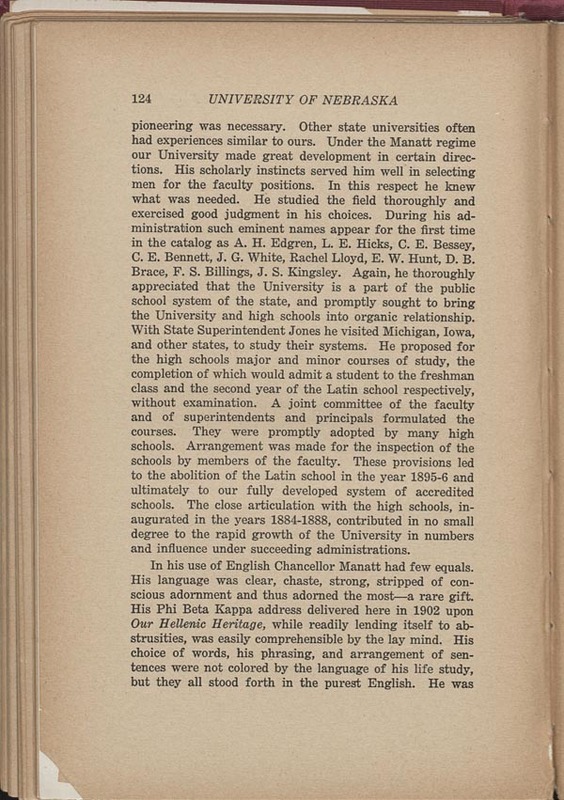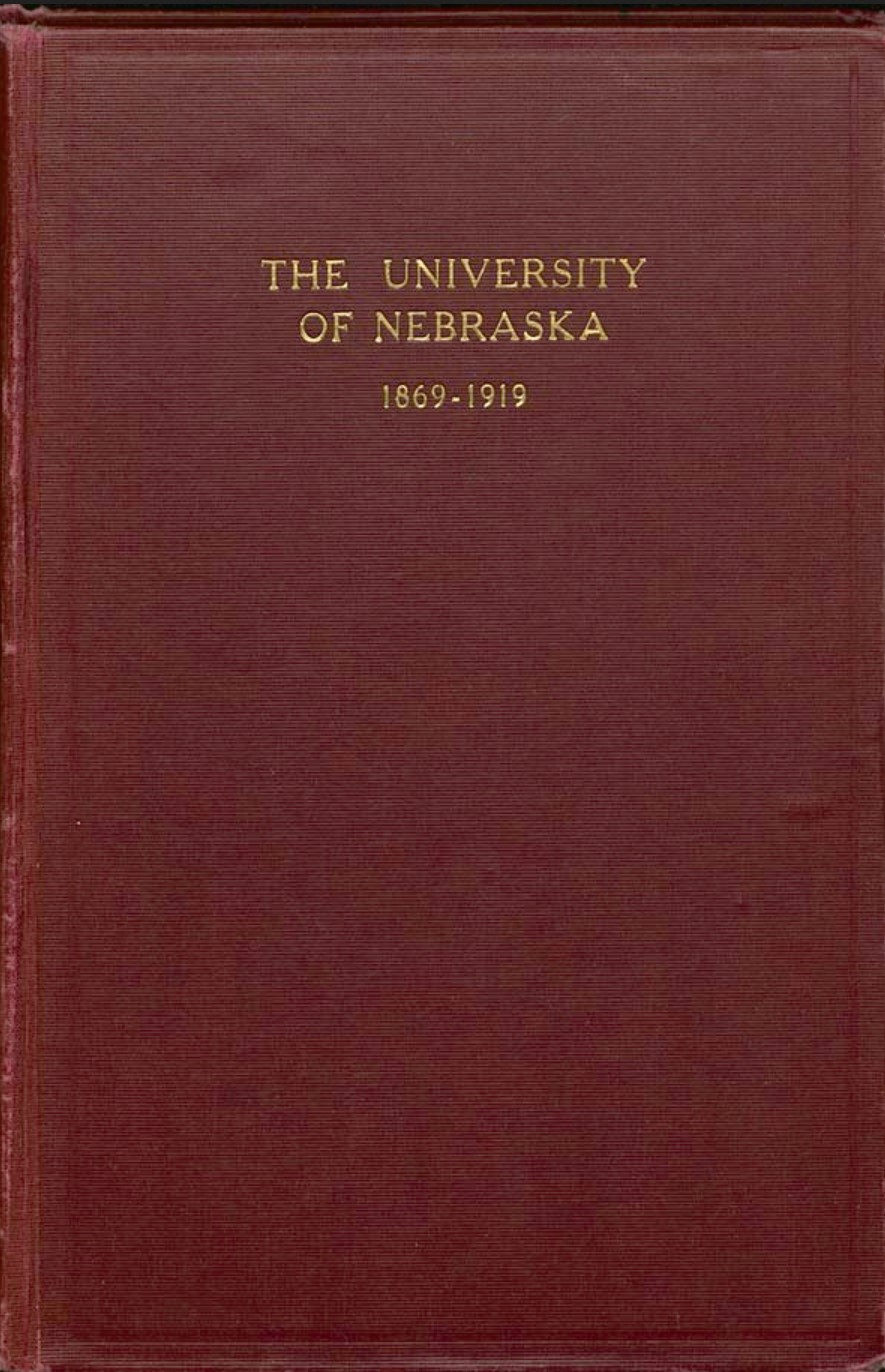130
Item
-
Title
-
130
-
Description
-
Semi-Centennial Anniversary Book: The University of Nebraska, 1869-1919
-
Transcription
-
pioneering was necessary. Other state universities often had experiences similar to ours. Under the Manatt regime our University made great development in certain directions. His scholarly instincts served him well in selecting men for the faculty positions. In this respect he knew what was needed. He studied the field thoroughly and exercised good judgment in his choices. During his administration such eminent names appear for the first time in the catalog as A. H. Edgren, L. E. Hicks, C. E. Bessey, C. E. Bennett, J. G. White, Rachel Lloyd, E. W. Hunt, D. B. Brace, F. S. Billings, J. S. Kingsley. Again, he thoroughly appreciated that the University is a part of the public school system of the state, and promptly sought to bring the University and high schools into organic relationship. With State Superintendent Jones he visited Michigan, Iowa, and other states, to study their systems. He proposed for the high schools major and minor courses of study, the completion of which would admit a student to the freshman class and the second year of the Latin school respectively, without examination. A joint committee of the faculty and of superintendents and principals formulated the courses. They were promptly adopted by many high schools. Arrangement was made for the inspection of the schools by members of the faculty. These provisions led the abolition of the Latin school in the year 1895-6 and ultimately to our fully developed system of accredited schools. The close articulation with the high schools, inaugurated in the years 1884-1888, contributed in no small degree to the rapid growth of the University in numbers and influence under succeeding administrations.
In his use of English Chancellor Manatt had few equals. His language was clear, chaste, strong, stripped of conscious adornment and thus adorned the most—a rare gift. His Phi Beta Kappa address delivered here in 1902 upon Our Hellenic Heritage, while readily lending itself to abstrusities, was easily comprehensible by the lay mind. His choice of words, his phrasing, and arrangement of sentences were not colored by the language of his life study, but they all stood forth in the purest English. He was
-
Rights
-
To inquire about usage, please contact Archives & Special Collections, University of Nebraska-Lincoln Libraries. These images are for educational use only. Not all images are available for publication.



